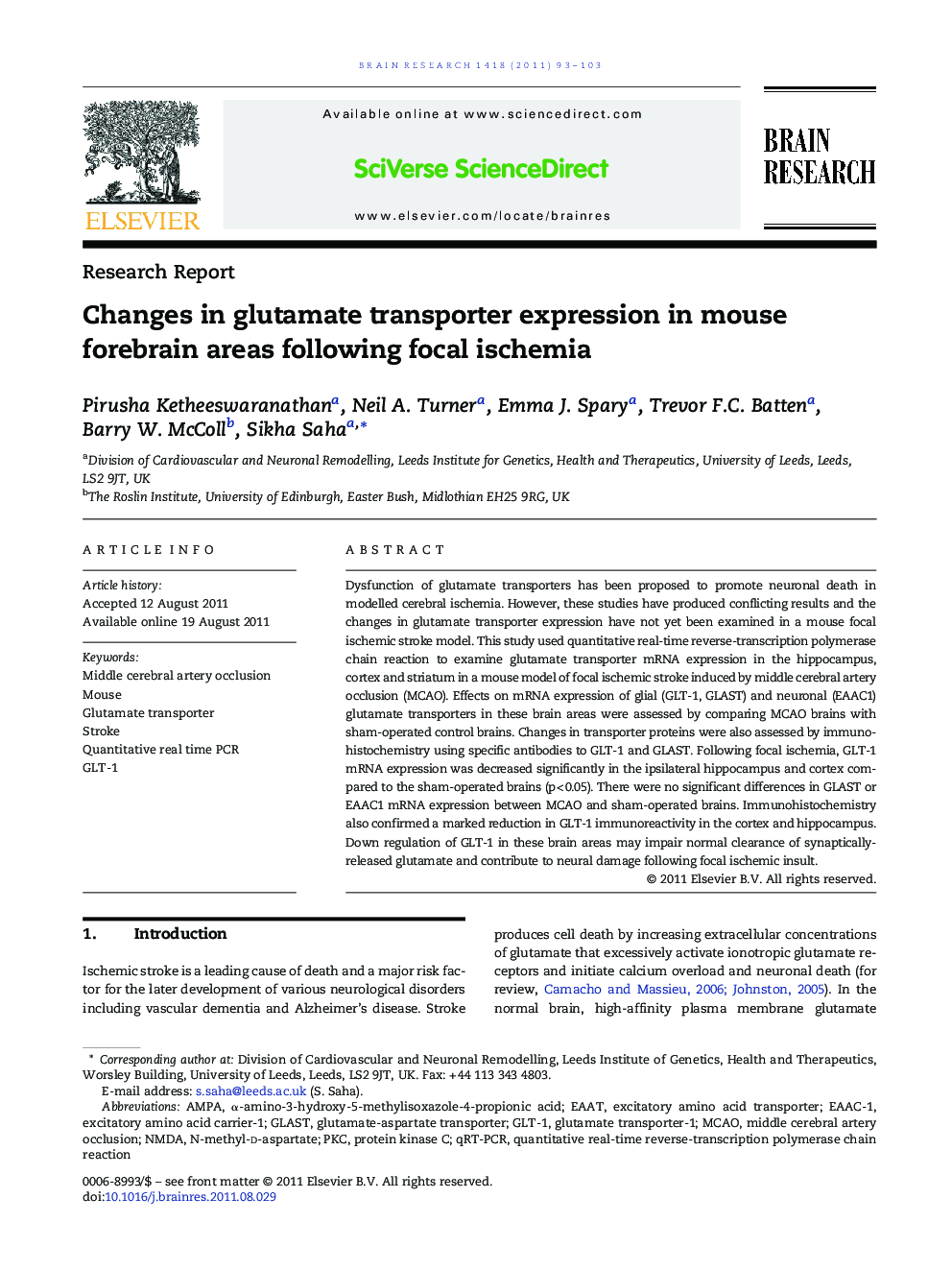| Article ID | Journal | Published Year | Pages | File Type |
|---|---|---|---|---|
| 4325704 | Brain Research | 2011 | 11 Pages |
Dysfunction of glutamate transporters has been proposed to promote neuronal death in modelled cerebral ischemia. However, these studies have produced conflicting results and the changes in glutamate transporter expression have not yet been examined in a mouse focal ischemic stroke model. This study used quantitative real-time reverse-transcription polymerase chain reaction to examine glutamate transporter mRNA expression in the hippocampus, cortex and striatum in a mouse model of focal ischemic stroke induced by middle cerebral artery occlusion (MCAO). Effects on mRNA expression of glial (GLT-1, GLAST) and neuronal (EAAC1) glutamate transporters in these brain areas were assessed by comparing MCAO brains with sham-operated control brains. Changes in transporter proteins were also assessed by immunohistochemistry using specific antibodies to GLT-1 and GLAST. Following focal ischemia, GLT-1 mRNA expression was decreased significantly in the ipsilateral hippocampus and cortex compared to the sham-operated brains (p < 0.05). There were no significant differences in GLAST or EAAC1 mRNA expression between MCAO and sham-operated brains. Immunohistochemistry also confirmed a marked reduction in GLT-1 immunoreactivity in the cortex and hippocampus. Down regulation of GLT-1 in these brain areas may impair normal clearance of synaptically-released glutamate and contribute to neural damage following focal ischemic insult.
► The present study uses quantitative real time PCR and immunohistochemistry. ► Examines glutamate transporter expression in the mouse brain following MCAO. ► GLT-1 expression was decreased significantly in the infarcted side of the forebrain. ► No significant differences in GLAST or EAAC1 mRNA expression were found. ► Down regulation of GLT-1 in the forebrain may impair normal clearance of glutamate.
